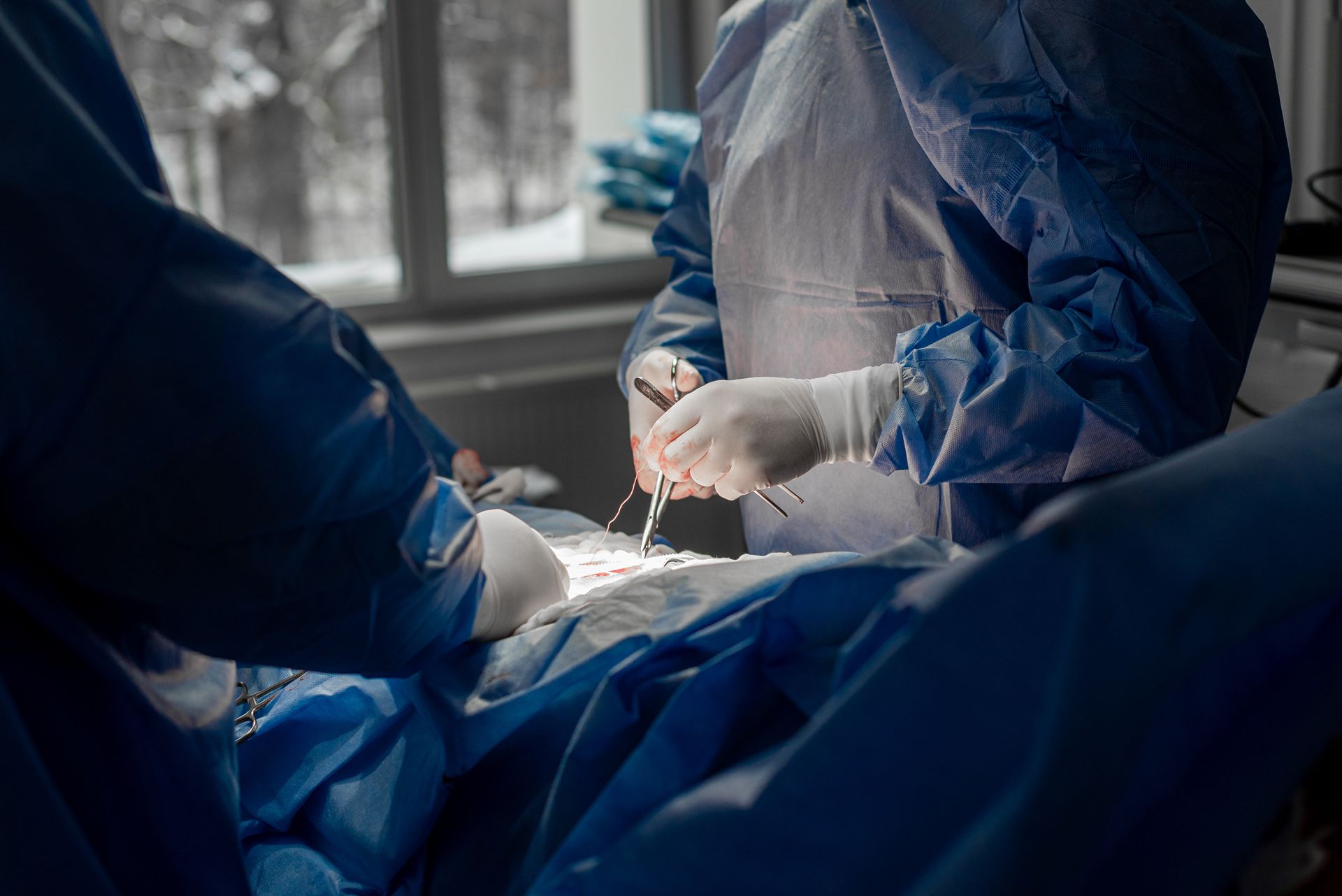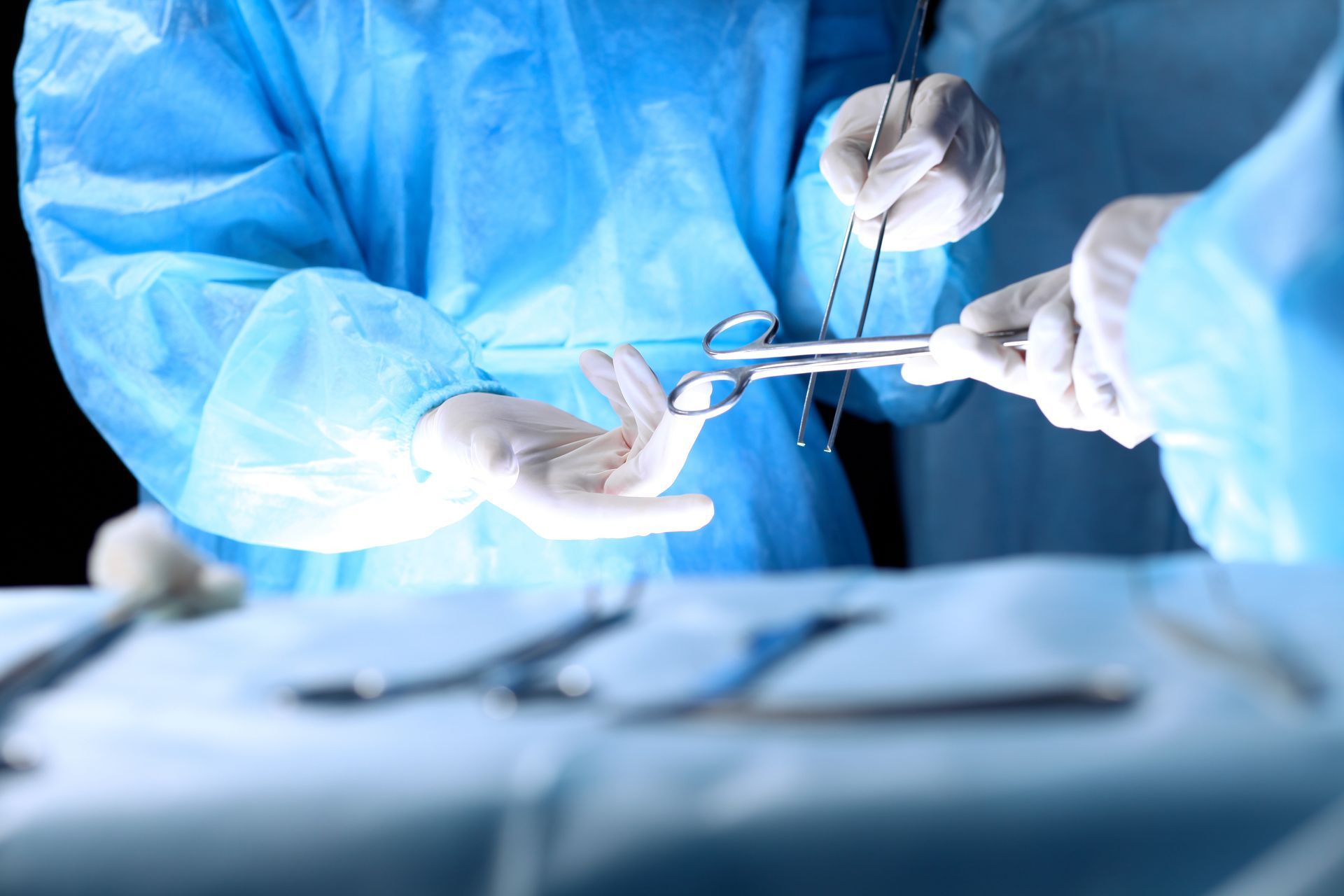Revealing Screening Guidelines: Colorectal Surgeon

Welcome to the Copper Mountain Surgical blog! We are a trusted source for information about colorectal health. In this post, we will guide you on colorectal cancer screening. Well-known colorectal surgeon Phoenix Arizona. Our medical center is focused on giving great surgical care to our patients. Let’s start this journey of learning for your well-being.
Understanding Colorectal Cancer
Colorectal cancer is a serious illness that impacts the colon and rectum, which can sometimes be confused with conditions like hemorrhoid issues. These areas are part of your digestive system. This type of cancer often starts from precancerous polyps, so finding and removing them early is very important.
Regular screening is key to spotting these polyps. It helps you take them out before they turn into cancer. If you understand why screening is important and can spot the symptoms, you can take steps to improve your colorectal health.
What Is Colorectal Cancer?
Colorectal cancer includes both colon cancer and rectal cancer. This cancer starts in the colon or the rectum. The colon is the large intestine, and the rectum is the last part of the digestive tract before the anus.
This cancer usually begins in the cells that line the colon or rectum. As time goes on, these abnormal cells can grow out of control, forming a mass called a tumor. Some tumors are not cancerous, but others are malignant. Malignant tumors can invade nearby tissues or spread to other parts of the body.
It is important to know the difference between colon cancer and rectal cancer for proper diagnosis and treatment. Colon cancer affects the colon, while rectal cancer is found in the rectum. Even though both types of cancer are similar, the location can affect treatment choices and long-term results.
The Importance Of Early Detection
Timely detection through regular screening is very important for treating colorectal cancer. Finding the cancer early greatly raises the chances of successful treatment and recovery.
When doctors discover colorectal cancer early, before it can spread, it is easier to treat. The best treatment options, like colon & rectal surgery, work well in the early stages. Regular screening helps healthcare workers spot any possible issues right away.
Also, finding the cancer early not only helps with better treatment results but also lowers the chance of complications and the need for more serious treatments later on.
Screening Guidelines For Different Age Groups
Regular check-ups for colorectal cancer are very important. The age to start screening can change based on personal risk factors. The U.S. Preventive Services Task Force (USPSTF) suggests that adults with average risk begin screening at age 45.
For those with a higher risk, such as a family history or issues like inflammatory bowel disease, they may need to start screening earlier or do it more often.
Recommended Age To Begin Screening
Starting regular colorectal cancer screenings on time is very important for keeping good health. If you have an average risk, the USPSTF recommends starting screenings at 45 years old. This is due to the higher chance of getting the disease as you get older.
Colonoscopies are the best method for screening colorectal cancer. These tests help doctors see the whole colon and rectum. They can find polyps and take them out if needed.
By following these guidelines and talking with your doctor, you can make smart choices about your health.
Adjusting Screening Frequency Based On Risk Factors
The frequency of your colorectal cancer screening may vary based on several risk factors. These include your family history, lifestyle choices, and overall health.
Individuals with a family history of colorectal cancer or certain genetic syndromes, such as Lynch syndrome, may need to undergo more frequent bowel screenings. Similarly, those with inflammatory bowel diseases, such as Crohn’s disease and ulcerative colitis, especially Crohn’s disease patients, are at a higher risk.
The following table provides a general guideline for screening frequency based on risk:
| Risk Level | Screening Frequency |
|---|---|
| Average Risk | Colonoscopy every 10 years |
| Increased Risk (family history, polyps) | Colonoscopy every 5 years or earlier, as recommended by your doctor |
| High Risk (inflammatory bowel disease) | Colonoscopy every 1-3 years, depending on the severity of the condition |
Types Of Screening Tests For Colorectal Cancer
Several tests can help find colorectal cancer early. Each test has good parts and some drawbacks. These tests can find polyps, masses, or other problems in the colon and rectum. They can even do this before symptoms show up.
It's important to talk about these options with your healthcare provider. This way, you can find the best test for your needs.
Fecal Occult Blood Test (FOBT) And Fecal Immunochemical Test (FIT)
Fecal occult blood test (FOBT) and fecal immunochemical test (FIT) are simple tests that check for blood in your stool. Blood in the stool can be an early warning sign of colon cancer. Doctors suggest these tests for regular screening, especially for people who have a normal risk of colon cancer. FOBT looks for hidden blood, while FIT finds human blood proteins. Both tests are important for catching colon cancer early so that people can get the help they need in time.
Colonoscopy And Flexible Sigmoidoscopy
Colonoscopy and flexible sigmoidoscopy are tests that help doctors see inside the colon and rectum. They use a thin, flexible tube with a camera on the end.
A colonoscopy checks the whole colon. In contrast, a flexible sigmoidoscopy looks at only the lower part of the colon. Both procedures can remove a small piece of tissue for testing if the doctor finds something unusual.
Even though a colonoscopy might seem more intrusive, it gives a complete look and is the best way to check for colorectal cancer. Your doctor can guide you on the best testing method based on your health history and risk factors.
CT Colonography (Virtual Colonoscopy)
CT colonography, also called virtual colonoscopy, is a safe imaging test. It helps find polyps or cancer in the colon and rectum. This modern method uses computed tomography to create clear pictures of the colon. It gives a complete view without needing a regular colonoscopy. CT colonography is useful for checking for colon cancer. It gives precise results while causing little discomfort to patients. This option works well for people who want something other than standard colonoscopies.
Risk Factors For Colorectal Cancer
Knowing the things that can raise your risk for colorectal cancer helps you take steps to prevent it. Many factors can make you more likely to get this disease. However, some of them can be managed by changing your lifestyle.
When you understand these risk factors and choose to live healthier, you can lower your chances of getting colorectal cancer. This will also help you feel better overall.
Genetic Factors And Family History
Genetic factors and family history are very important in figuring out how likely someone is to get colorectal cancer. If you have a close relative who has been diagnosed with this cancer, especially when they were younger, your risk goes up a lot.
Some inherited genetic conditions, like Lynch syndrome and familial adenomatous polyposis (FAP), are tied to a higher risk of colorectal cancer. These conditions can run in families and may cause a person to get the disease at a young age.
If colorectal cancer runs in your family or you have any genetic conditions, it’s important to talk to your doctor. They can measure your risk, suggest the right tests, and give you personal advice.
Lifestyle Factors Contributing To Risk
Several factors besides genetics can lead to colorectal cancer. These factors include what you eat, how active you are, how much alcohol you drink, and if you smoke.
A diet that is low in fiber and high in processed meats can raise your risk of this cancer. On the other hand, staying active regularly can help protect against it. Drinking too much alcohol and smoking also increases the chance of getting colorectal cancer.
Certain health conditions, like diverticulitis, which affects small pouches in the colon, can make your risk go up. It’s important to live a healthy life. Eating a balanced diet, exercising regularly, and not smoking or drinking too much alcohol can help lower your risk.
Preparing For Your Screening Appointment
To get ready for your colorectal cancer screening, good preparation is key. This helps to make sure you get accurate results and have a smooth visit. How you prepare will depend on the specific test you will take.
Your healthcare provider will give you clear instructions based on the test you've chosen. It is important to follow these instructions closely. Doing this will improve how well the screening works.
How To Prepare For A Colonoscopy
Preparing for a colonoscopy involves cleaning your colon well for clear images. Your doctor will give you specific instructions to follow in the days before the test.
This usually includes eating only clear liquids and using a special solution to help get rid of waste from your colon. It’s very important to stick to these guidelines closely. Doing this can help make the test go well and lower the chance of problems.
Good preparation is key for an effective colonoscopy. If you have any questions about how to get ready, feel free to contact Copper Mountain Surgical. Our team is here to provide good surgical care and help with your needs.
What To Expect During And After Screening Tests
During most screening tests, you will be awake and can talk to the healthcare team. However, for a colonoscopy, you might get mild sedation to make you comfortable. Depending on the test, you may have to lie on a table, change your position, or have a small tube put into your rectum. Check out Post-Operative Care: A Comprehensive Guide for more information.
After the screening, you can usually go back to your normal activities right away. But if you had a colonoscopy, you might need someone to drive you home because of the sedation.
It is normal to feel some mild discomfort or bloating after the test, but these feelings usually go away quickly. Your doctor will talk to you about the test results, explain what they found, and suggest what to do next if needed.
Why Choose Copper Mountain Surgical
At Copper Mountain Surgical, we care for patients with many colorectal conditions. Our skilled surgeons,, who are top rectal surgeons and colorectal surgery specialists, focus on giving personalized care in a kind and caring environment.
We use the latest advancements in surgery, including robotic surgery in Tucson, which helps us perform less invasive procedures. This way, patients recover faster, feel less pain, and get the best results. We are here to provide great care and support our patients in improving their colorectal health.
Conclusion
Colorectal cancer screening is very important for catching problems early and preventing the disease. It's good to know the screening guidelines for different ages and to change how often you get screened based on your risk factors. This helps you focus on your health. There are different screening tests, and colonoscopy is a main one that helps find potential issues. Your risk can also change because of things like family history and your lifestyle choices. To make your screening appointment go smoothly, it helps to prepare ahead. For expert care and support during your screening journey, choose Copper Mountain Surgical. Take control of your health and
reach out to us today.




